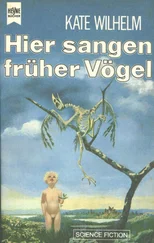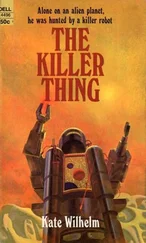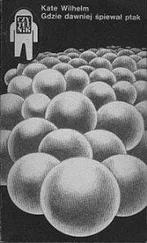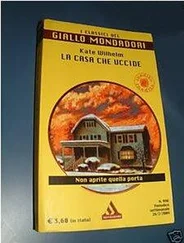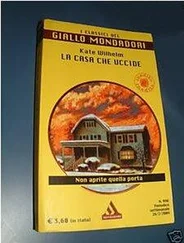When Erica arrived at the clinic that afternoon, she saw Annie outside one of the therapy rooms. Annie looked up guiltily, then motioned her closer to the door, holding her finger to her lips.
A woman was saying in a harsh furious voice, “I’m paralyzed, goddamn it! Don’t give me any of that crap!”
“I know you are,” Darren said calmly. “And you’re mad as hell and don’t intend to take it any longer, so get out of the way, world. Right? Well, see, I’m pretty sore myself. You’re too young, for one thing. It isn’t fair. Lightning bolt stroke and zap, you can’t move. But we accepted you as a patient, and we don’t take anyone unless we can help. We’re going to help you, and you’re going to work harder than you thought you could.”
“Oh, Jesus! Just tell me what I’m supposed to when I can’t do a fucking thing!”
“First thing every day will be hydrotherapy. Nice warm water, and you wear angel wings. It’s really a flotation device. You couldn’t sink or flip over if you tried. And Tony will put you through a series of exercises. That’s to regain muscle tone, strength building, in the nearest thing to weightlessness we can come up with. You’ll see. After that a little snack, and then Chris will guide you through an imaging session, meditation, self-hypnosis, whatever you decide to call it. That’s hard, but it works. Lunch next, and in the afternoon I’ll help you parachute jump.” He laughed, a low rumbling sound. “We omit the plane and chute, there’s just the harness. That’s to bear your weight. And underfoot a moving walkway, to remind your legs how to work.”
He paused a moment, then said, “You can see that you have a busy schedule lined up. After all that you might want to listen to our Rikki read. Most folks upstairs do. Her name’s Erica but some of the kids started calling her Rikki—you know, like Rikki-Tikki-Tavi—and I guess we mostly all do now.”
Erica gave Annie a startled look; Annie raised her eyebrows and nodded.
“And if at any time during the day you feel like screaming,” Darren said, “do it. Or if you need a little something, say a margarita or a slug of gin, say so. Not that we can give you a liquid painkiller, but a magic pill or something will have the same effect.” His voice dropped lower, and no longer sounded amused or playful when he said, “Connie, we’re going to make you walk again, and use your hand and arm, and control your body. We are. Any other questions?”
One of the other therapy room doors opened, and Annie looked at her watch in dismay. “I’ve got to go. See you around, Rikki.” She ran.
Erica continued on down the corridor toward the reception desk to check in with Bernie, thinking Rikki. She had never had a nickname before. They must talk about her, or maybe about her reading, which they seemed to think was helpful. They probably knew she was practically destitute, that Darren was her tenant. What else? What else was there, actually?
The clinic opened at eight each weekday morning, but Bernie arrived fifteen or twenty minutes early to check in staff and be ready for the first patients, some of whom were convinced that they had to show up at least ten minutes before their appointments. That Tuesday morning Bernie was surprised when Erica hurried in by way of the front door at a quarter to eight.
“I’m going to be late, and I parked in the van spot,” Erica said. “On my way to Santa Clara Elementary. Will you see that Tim Dwyer gets this? He said he’s going home today.” She put a book on the desk and hurried back out.
Bernie glanced at it and smiled—one of the Harry Potter books—and then put it under the counter. Others were arriving, some stopped at the desk, some just waved. The first patient of the day came in, and she sent him and his wife to the waiting room. Another busy day had started.
Carlos Hermosa pulled into the gravel spot provided for his truck, leaving just enough room for a car to pass in the narrow alley. Rain or shine, he thought, getting out, and today it was rain and fog, rain and fog. But the bird feeders needed filling, the pump at the waterfall needed to be checked, slug bait had to be put down. The first rains brought out slugs and snails in hordes, and they woke up hungry. The cyclamen were starting to bloom, and he knew from experience that the evil critters would head for them straightaway. And, he reminded himself, he had to check the supports for the dahlias. Heavy blooms like they had, soaked now, would pull the plants right over if he didn’t see to them. He was humming under his breath, ignoring the rain as he prepared two pails to take into the garden with his implements, birdseed, slug bait.
The gate was open, but that just meant that Dr. Boardman had already gone in. Either he or Carlos unlocked the gate every morning. Carlos went into the garden and to the first bird feeder, manipulated by a cord and pulley, up high enough for the folks upstairs to look out and watch the birds. And the birds were real gluttons. He never had found out how much was too much for them. They ate whatever he put out.
At twenty minutes past eight, rounding a curve in the path, he came to a stop, then dropped his pails and ran to a man lying on the path. ‘’Madre, Madre,” Carlos whispered, crossing himself.
He backed up a step, and another, then turned and ran to the clinic. Inside the door he pulled off his rain hat and hurried down the corridor, dripping water, toward Dr. Boardman’s office.
Darren and one of the young interns met him in the corridor and Darren said, “Carlos? What’s wrong? Are you sick?”
“Dr. Boardman,” he said. “I have to see Dr. Boardman.”
“He hasn’t come in yet,” Darren said. “What’s the matter with you?”
“There’s a dead man in the garden,” Carlos said in a hushed voice.
“What the hell…?” Darren muttered. “Show us.”
Carlos led the way to the path where the dead man was lying with rain streaming off his face.
“Jesus,” Tony Kranz whispered, gazing at David McIvey. There was no need to touch him, to feel for a pulse, no need to try to do anything for him. His sightless eyes were wide-open, his skin as white as marble.
What had started as a normal busy day became much, much busier.
That evening Naomi, Greg and Thomas sat in the living room of the residence and talked.
“It’s been a madhouse all day,” Greg said, handing Thomas a glass of claret. “They didn’t even remove the body until four this afternoon. And they’ll be back tomorrow with more questions.”
Thomas nodded. And the next day and the next, he thought, right up until they made an arrest, probably. “Tell me about it,” he said. His wrinkled face became so creased when he frowned that he looked inhuman, and he was frowning ferociously.
“McIvey came by this morning to make sure Naomi could drive him to the office,” Greg said, “and to get the key to the gate. He was going to sign a patient out. Annie dropped him off at seven-thirty, then left to go up to Portland to collect some X rays. Someone was waiting for him, or followed him, or he surprised someone who was already in the garden for God knows what reason. Anyway, he was shot in the heart at close range. The police kept asking exactly what time he arrived, what time he left, and I told them seven-thirty, then they wanted to know how I could be certain. God, you answer a question and they start pounding on the answer. The police wanted to know about the keys, who has one, when we lock up, when we open up. God knows how many keys are floating around. I don’t. You have one, we do, Carlos. Joyce had one. Who else? I don’t know.”
“Darren has one,” Naomi said. “He told them he doesn’t know where it is, but he did have one.”
Читать дальше


